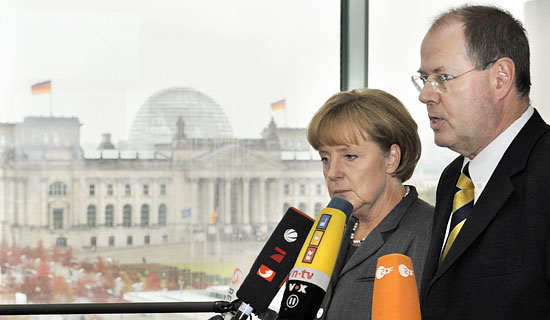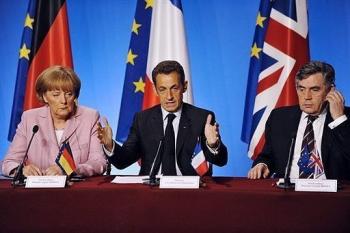Nov. 8 (Bloomberg) — Allianz SE, Europe’s second-biggest insurer by market-value, posted a 2 billion-euro ($2.6 billion) loss and said it may miss operating profit forecasts for this year and next because of the turmoil in financial markets.
Allianz had a net loss including discontinued operations in the third quarter, compared with net income of 1.9 billion euros a year earlier, the Munich-based insurer said in a statement today. That was less than the 3.85 billion-euro estimate of 14 analysts surveyed by Bloomberg. Net income from continuing operations, which reflects the sale of Dresdner, was 545 million euros, the company said, missing analysts’ estimates of 782 million euros.
“Without a major equity market recovery, the operating profit outlook of 9 billion euros before banking for this year and next year cannot be reached,” Allianz Chief Financial Officer Helmut Perlet said in the statement.
Allianz, led by Chief Executive Officer Michael Diekmann, agreed on Aug. 31 to sell Dresdner Bank to Frankfurt-based Commerzbank AG for cash and stock. Commerzbank shares lost about 40 percent of their value in the month ended Sept. 30. Discontinued operations, which reflect the sale of Dresdner effective from Sept. 1, accounted for “transaction-based impairments according to IFRS 5” of 1.4 billion euros as well as for a net loss of 1.2 billion euros from Dresdner’s operations, Allianz said.
Read moreAllianz Posts 2 Billion Euro Loss, May Miss Forecast










